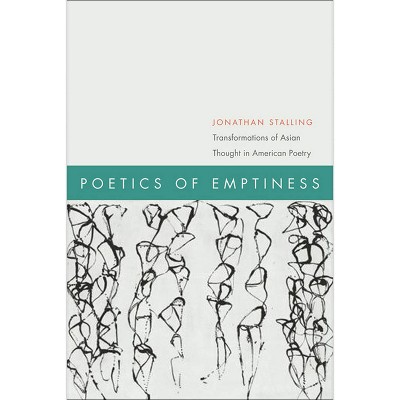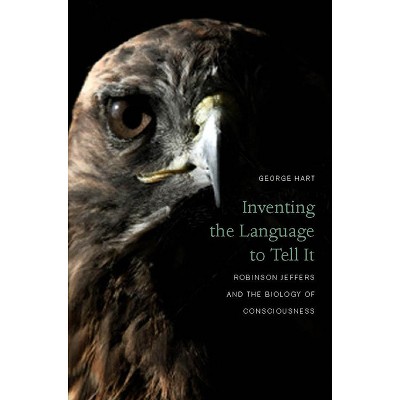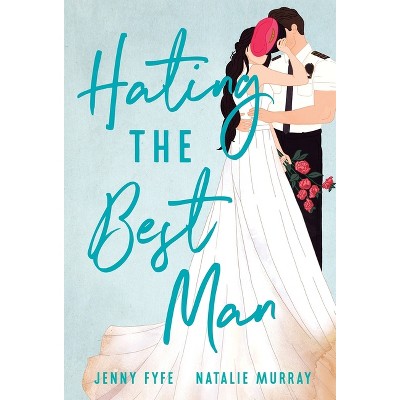About this item
Highlights
- In Hating Empire Properly, Sunil Agnani produces a novel attempt to think the eighteenth-century imagination ofthe West and East Indies together, arguing that this is how contemporary thinkers Edmund Burke and DenisDiderot actually viewed them.
- About the Author: Sunil M. Agnani is Assistant Professor of English and History at the University of Illinois at Chicago.
- 320 Pages
- Political Science, History & Theory
Description
About the Book
Discusses arguments made against empire and colonialism in the eighteenth century through works by Denis Diderot and Edmund Burke. Explores the limits and failures of their arguments by emphasizing what they wrote on the two indies, especially India and Haiti.Book Synopsis
In Hating Empire Properly, Sunil Agnani produces a novel attempt to think the eighteenth-century imagination of
the West and East Indies together, arguing that this is how contemporary thinkers Edmund Burke and Denis
Diderot actually viewed them. This concern with multiple geographical spaces is revealed to be a largely
unacknowledged part of the matrix of Enlightenment thought in which eighteenth-century European and American self-conceptions evolved. By focusing on colonial spaces of the Enlightenment, especially India and Haiti, he demonstrates how Burke's fearful view of the French Revolution--the defining event of modernity-- as shaped by prior reflection on these other domains. Exploring with sympathy the angry outbursts against injustice in the writings of Diderot, he nonetheless challenges recent understandings of him as a univocal critic of empire by showing the persistence of a fantasy of consensual colonialism in his thought. By looking at the impasses and limits in the thought of both radical and conservative writers, Agnani asks what it means to critique empire "properly." Drawing his method from Theodor Adorno's quip that "one must have tradition in oneself, in order to hate it properly," he proposes a critical inhabiting of dominant forms of reason as a way forward for the critique of both empire and Enlightenment.
Review Quotes
. . he [Agnani] offers a fresh textual analysis of a selection of colonial writings by Diderot and Burke.-- "--Anita Rupprecht, University of Brighton"
"Hating Empire Properly will be praised by political philosophers as well as literary critics for its brilliant 'solution' of the Edmund Burke 'problem' how could a 'liberal' on America and India also be a'conservative' on France? How can we grasp Denis Diderot's defense of colonial commerce alongside his denunciations of empire? Neither apologia nor jeremiad, Agnani's compelling study of the Enlightenment shows subtle consistencies where previous critics could only see contradiction."-----Srinivas Aravamudan, author of Enlightenment Orientalism: Resisting the Rise of the Novel
Agnani argues convincingly that Enlightenment historiography is imperial historiography; that is, it derives the terms of its understanding of historical transitions and epochal events (in Europe as elsewhere) from the history of empires, past and present. Agnani focuses on Diderot and Burke, but his carefully-crafted analyses of the energy and limits of their anti-colonialist writing illuminate the wider field of colonial discourse studies.-----Suvir Kaul, University of Pennsylvania
Agnani offers wonderfully nuanced readings of two profound and vexing 18th-century thinkers-Diderot and Burke.Agnani refuses, just as Diderot and Burke did, to be defined and constrained by shallow distinctions that have so often marked our view of the Enlightenment, its critics and their relationship to European imperialism. This is a work of sustained subtlety and intelligence.-----Uday S. Mehta, City University of New York
Sunil Agnani's Hating Empire Properly: The Two Indies and the Limits of Enlightenment Anticolonialism (winner of the 2014 Henry Levin Prize) is a rich contribution to a nascent but ever-expanding field we could call colonial Enlightenment studies.-- "Cultural Critique"
What should it mean to hate empire, properly? What modes of conceptual critique, what ethos of engagement, what attitude to the modern, should we adopt? In this learned and deftly argued book, Sunil Agnani offers us a revised picture of the conceits of Europe's self-consciousness of empire by holding up the internal anticolonial mirror of Diderot and Burke. If Enlightenment is neither single nor seamless, neither a choice nor a prison, what Agnani's reading underscores is the truth of the dictum that, for its conscripts anyway, the only way out is through.-----David Scott, Columbia University
About the Author
Sunil M. Agnani is Assistant Professor of English and History at the University of Illinois at Chicago. He has held previous positions at the Princeton Society of Fellows and the University of Michigan.











